Scottish independence: Could areas of England leave the UK?
- Published
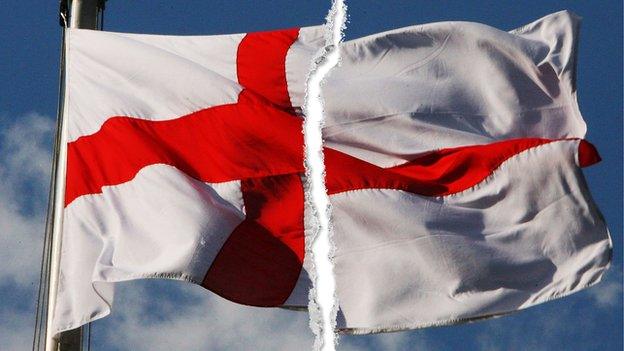
In less than a year people in Scotland will vote on whether they want to leave the UK. But are there any parts of England that want independence too?
England has always been a country with strong regional identities and for some this has developed into a need for greater autonomy.
Voters in Scotland could soon opt for independence but would the cry of "freedom" be heard so loudly among the Yorkshire Dales or the Wessex Downs?
Yorkshire
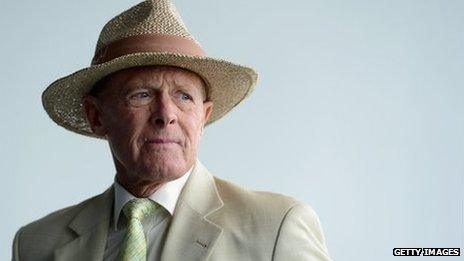
Would Geoffrey Boycott head the diplomatic service in an independent Yorkshire?
If Yorkshire was its own country, its haul of seven gold medals at the London 2012 Olympics would have put it 12th on the medal table.
It is a fact espoused by many a proud Yorkshireman and woman when celebrating the county's distinctiveness.
But there have also been calls for more political independence, with former Home Secretary David Blunkett even suggesting a "White Rose Parliament" for the county.
Yorkshire poet Ian McMillan, known to some as the "Bard of Barnsley", said Yorkshire had a "supreme" confidence which would aid it with independence.
"We have a word in Yorkshire, 'brussen', which means brass neck," he said.
"We have that in huge quantities - that we're better than any other county.
"That's what an area needs if it wants to be independent. If you're nervous about your area, you don't want to go for independence."
But what would an independent state of Yorkshire look like?
"Dickie Bird would be PM as he would ensure that nothing was spent - on our crest it would be 'how much?'
"The foreign secretary would be Michael Parkinson because he doesn't live in Yorkshire, but somewhere foreign like Berkshire.
"And the diplomatic service would be run by Geoffrey Boycott.
"We're the largest county so we've got a similar attitude to Texas in the US, but where they've got 10 gallon hats, we've got flat caps."
Cornwall
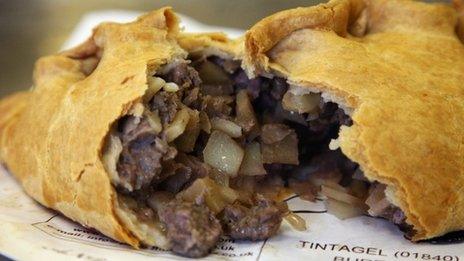
More than 73,000 people said their nationality was Cornish in the 2011 census
Cornwall has the strongest independence movement within England.
The peninsula has its own language, three elected councillors from a nationalist party and thousands of people who identify as being Cornish and not English.
According to Cornwall Council, in the 2011 census, external 73,200 people out of a total population of 530,000 said they had a Cornish national identity.
"Cornwall is one of the historic nations of Britain, same as Wales, Scotland," said Dick Cole, leader of nationalist party Mebyon Kernow.
"It is not a region of England. We have our own traditions, culture and language."
Mebyon Kernow does not want to separate from the UK like the Scottish National Party does, but does want to be seen as its own nation, with a legislative assembly similar to the Scottish Parliament.
"The people of Cornwall have lost out because of the distance from central government. Independence from England would solve this," Mr Cole added.
London
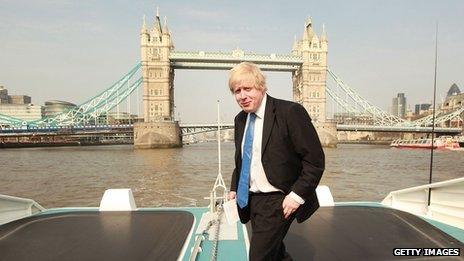
Would Boris Johnson become Prime Minister if London became independent?
With a population greater than Scotland and Northern Ireland combined, external, London is like no other city in the UK.
The Greater London Authority is the closest thing to a devolved government that England can boast.
A truly global city, it generates vast wealth through its financial sector and attracts migrants from all over the world.
This distinctiveness can lead some to claim that it would do better if it severed ties with England and became its own city-state.
In his campaign to be elected for a second time as Mayor of London, Ken Livingstone told Total Politics, external that he would like to see "independence" for London.
When asked what the one thing he would like to achieve as mayor, he said: "Total independence for London. A Republic of London.
"If London was independent we would have more people than half the members of the UN do."
Wessex

Thomas Hardy's book Tess of the d'Urbervilles is set in Wessex
Amid prehistoric stone circles, thatched cottages and white horses dug into chalk hillsides lies the ancient kingdom of Wessex.
The setting for most of Thomas Hardy's novels, the area has not existed politically since the 10th Century but covers much of the South West.
So what binds together people who live in modern-day Dorset, Wiltshire, Hampshire?
David Robins, who is the secretary general of the Wessex Regionalist Party, said: "It is predominantly still a rural area, therefore sees itself distinct from London and metropolitan influences."
When BAE Systems announced it was stopping ship building in Portsmouth - but keeping open its shipyard in Govan, Scotland - some commentators suggested this was due to fears in Westminster about encouraging Scottish independence.
So is Wessex losing out by not having a strong regional voice?
Mr Robins, whose party is also campaigning for similar powers to those used by the Scottish Parliament, said devolution in England would allow policies to be tailor-made for the Wessex region.
He added: "We're not anti-England, but the old kingdoms have a little bit more colour to them - they are names people remember from their history lessons and make sense in the wider European context."
Northumbria
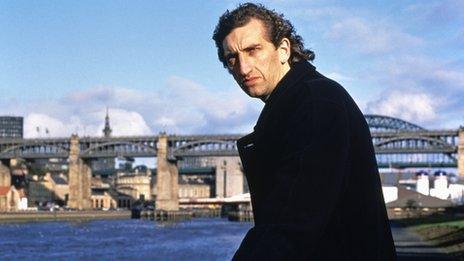
Voters in the North East rejected plans for a regional assembly in 2004
Northumbria - another ancient Anglo-Saxon kingdom - covered much of northern England.
The Venerable Bede - one of the most highly regarded scholars of his time - wrote dozens of books from his monastery in Jarrow. The kingdom also shared a border - and some heritage - with lowland Scotland.
Its relative remoteness to the rest of England has led to distinct dialects, but also the first proper push for an elected regional assembly in 2004.
In 2004 people in the North East rejected plans, external for an elected regional assembly, with more than three quarters voting "no" in a referendum. The result ended plans by John Prescott to roll out elected assemblies to other parts of England.
"If autonomy is granted to other parts of the United Kingdom and the kingdom remains united - if there's some way of working that magic trick - then surely there's an opportunity for regions that want greater autonomy, to have it," says Kim Bibby-Wilson, from the Northumbrian Language Society.
"There is a distinct identity in the North East of England - particularly because of the isolation, due to the North Sea and the Pennines.
"In Northumbria's golden age we were a leading light in education and culture within Europe."
Mercia
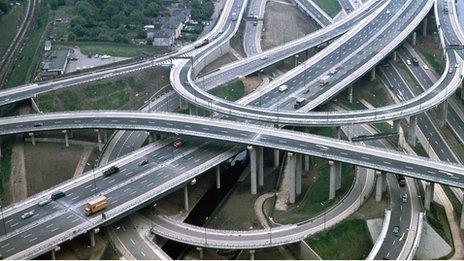
Mercia covers much of what is commonly known as the Midlands
"Some people say Mercia is 1,000 years in the past, but maybe it's the future?"
Jeff Kent wants independence for Mercia - the old kingdom that roughly corresponds with the modern Midlands.
He is the convener of the Acting Witan of Mercia, which so far claims to have registered 2,000 people as "citizens".
A "witan" in Anglo-Saxon times was the gathering of the king's advisers.
"We want to be part of England but self-governing," he said. "In a perfect world Mercia would be part of an English confederation.
"The Midlands is a region without proper boundaries, however people associate with it. Why is that the case?
"We believe it's because there's an affinity to the Anglo-Saxon regions - they seem to be more natural to people, and there's a continuing identity."
- Published5 June 2011
- Published26 March 2013
- Published31 January 2013

- Published13 December 2011
